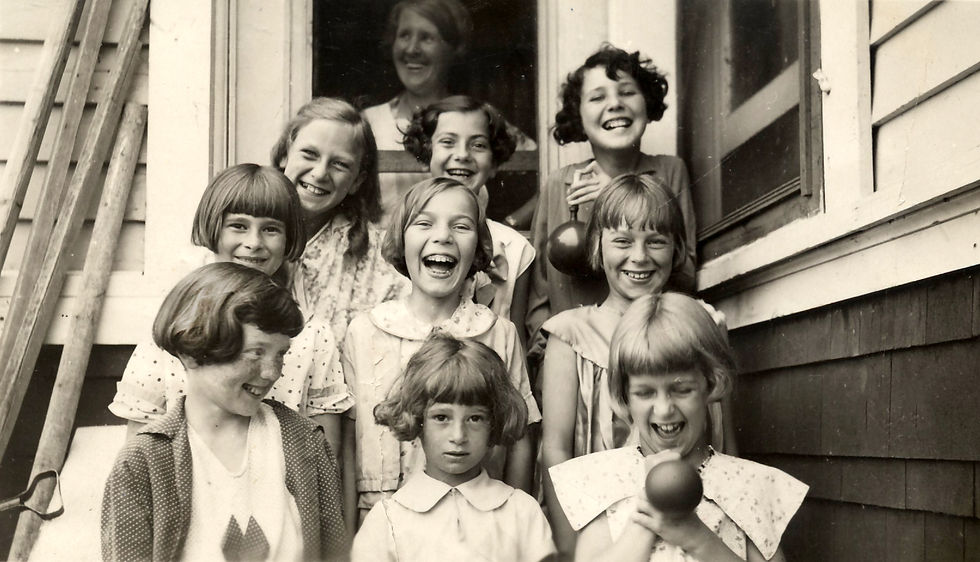Who will tell the stories now?
- Francie - Story Sisters

- Oct 23, 2024
- 2 min read

Our dad, a former newspaperman in the exciting days of Canadian Press teleprompters, typewriters and war, began, in his retirement, writing newspaper columns. He also broadcast them on local radio stations (he had a great radio voice). They were simple stories, often about his family or people he met in his travels or his lifetime. They made people laugh and they made people cry. They weren’t long – maybe 500 words or three broadcast minutes – but they were real. They were relatable. They were stories. They had a big following.

In small communities, people know people. They chat. They exchange events, family news, catastrophes and celebrations. However, most of the time their verbal stories are just left there, dissolving into the air, gone as soon as they're uttered. They rarely get written or recorded.
I used to edit and write for community newspapers. Of all the articles in those publications, it was the stories about everyday people that charmed me. They were about folks in the community who considered themselves ordinary, un-newsworthy. When I’d ask to interview them, often they’d respond: “Oh, but I don’t have much to say.”
And yet they did. Once they started talking about their “ordinary” lives, some of the most remarkable stories emerged. They might be talking about the weather, and that would remind them of their grandmother, and that would lead to events of the past – when news and fashion and technology and science were nothing like they are today. It was a history lesson on someone’s front porch.
I’d take their picture and thank them for the interview, then go back to the newspaper office to write their story. I did this day after day, week after week. It was a creative and fulfilling process. They would stick their printed stories up on the fridge or paste them in scrapbooks. They’d take them down to the local post office and send them to friends and relatives. They’d leave them in attics and bottom drawers, slowly forgotten, ready for a grandchild to discover someday.
In a village of a thousand, there are a thousand stories. I didn't get to tell them all, but I wanted to.
Alas, the community newspaper industry in this digital age is almost non-existent. The local publications that do exist are skimpy or they're online in some flat, pedestrian format. There are few, if any, heart-and-soul stories about the real lives of everyday people.
Stories in social media are not stories but a few sentences that are gone in a flash. Who will look for them, or care about them, next week – never mind 50 or 100 years from now?
Our stories tell us who we are. They are proof that we have existed, laughed, loved, hurt, made mistakes, learned, discovered, rejoiced, created, shared. They are the very spirit of us. But who will write them?
We will. It’s up to us. Because stories last forever.
At least, they do if we preserve them, one page at a time.





Comments